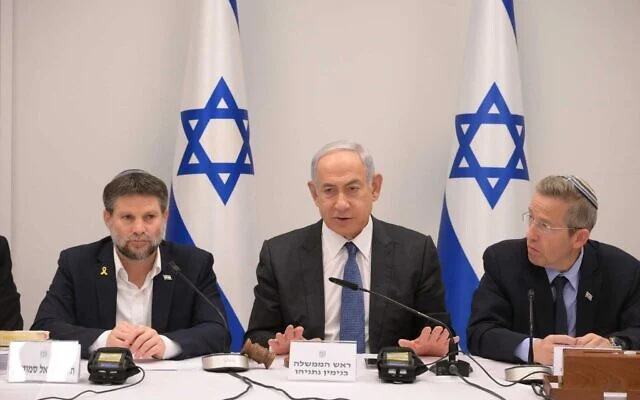The Israel government has approved a strong new plan to encourage the expansion of settlements in the recently occupied Golan Heights region. On Sunday the Israel cabinet gave a unanimous approval to Prime Minister Benjamin Netanyahu’s NIS 40 million ($11 million) plan to double the settler population in the Golan Heights.
The Golan heights is a plateau at the southwest corner of Syria. It is bordered by the Yarmouk River in the south, the Sea of Galilee and Hula Valley in the west. It is a heavily contested geopolitical region. Two thirds of the region was occupied by Israel following the 1967 Six-Day War and then effectively annexed in 1981 – an action unrecognized by the international community, which continues to consider it Israeli-occupied Syrian territory.
Following the 2024 Syrian opposition offensives and the fall of the Assad regime, Prime Minister Netanyahu ordered Israeli forces to seize the buffer zone on 8 December 2024, citing the abandonment of Syrian positions and the collapse of the 1974 ceasefire agreement. Israeli forces launched strikes on Syrian military assets, including air strikes destroying the Syrian Navy. Israel then proceeded to occupy the remaining one third area.
Israel considers the Golan Heights vital for its national security, asserting that control over the region is necessary to defend against threats from Syria as well as other Iranian proxy groups.
Netanyahu’s statement
Netanyahu said in a statement on Sunday evening that Israel has “no interest in a conflict with Syria. We will determine Israeli policy regarding Syria according to the reality on the ground,” he said. There are more than 30 Israeli settlements in the Golan Heights, which are home to an estimated 20,000 people. They are considered illegal under international law, which Israel disputes.
The settlers live alongside thousands of Syrians, most of them Druze Arabs who did not flee when the area came under Israeli control. Around 50,000 people live on the Israeli-controlled side of the heights, evenly split between Jews and Druze. The money will go toward education, renewable energy, the establishment of a student village, and a plan for absorbing new residents, said the Prime Minister’s Office.
“Strengthening the Golan Heights is strengthening the State of Israel,” Netanyahu was quoted in the statement as saying, “and it is especially important at this time. We will continue to hold on to it, make it flourish and settle it.”
International reaction
President Bashar al-Assad and his family fled to Russia and took up asylum when Abu Mohammad al-Julani’s Islamist group Hayat Tahrir al-Sham (HTS) led other rebel factions in a lightning offensive on Damascus. The groups are continuing to form a transitional government in Syria, so far headed by Julani.
On Saturday, the US Secretary of State Antony Blinken said Washington had made direct contact with HTS, though the US and other Western governments still designates it as a terrorist organisation. The HTS was proscribed as a terrorist group by the UN, the US, Turkey, and other countries – and currently remains so. Its leader Abu Mohammed al-Julani, has previous ties with al-Qaeda and is considered a strong Islamist on similar lines.
Meanwhile in a statement Saudi Arabia expressed “condemnation and denunciation” of the plan, which it called part of a “continued sabotage of opportunities to restore security and stability in Syria.” Qatar also asserted that the Israeli declaration was a “new episode in a series of Israeli aggressions on Syrian territories and a blatant violation of international law.” The United Arab Emirates has also claimed that the effort “threatens further escalation and tensions in the region. This decision is a deliberate effort to expand the occupation and is in violation and contravention of international law,” the UAE foreign ministry said.
Israel’s charge
Last week, Israel launched a major operation to destroy the Syrian military’s strategic military capabilities, including chemical weapons sites, missiles, air defenses, air force and navy targets, in a bid to prevent them from falling into the hands of hostile elements who could use them against the Jewish state or hand them to Hezbollah in Lebanon.
Israel also entered a United Nations-patrolled buffer zone along the border just hours after the rebels, led by an al-Qaeda-linked jihadist group, took Damascus. While the move has drawn some international condemnation, Israel has defended it as necessary to prevent hostile elements from utilizing the current vacuum of power. It has said it will not become involved in the internal conflict in Syria and that its seizure of the demilitarized zone established in 1974 was a defensive move and a temporary one until it can guarantee security along the frontier.
Israel Defense Minister Israel Katz said Friday that he had ordered the military to prepare to stay atop the Syrian side of Mount Hermon during the coming winter months as Israel aims to prevent the border region from falling into the hands of any anti Israel forces.








